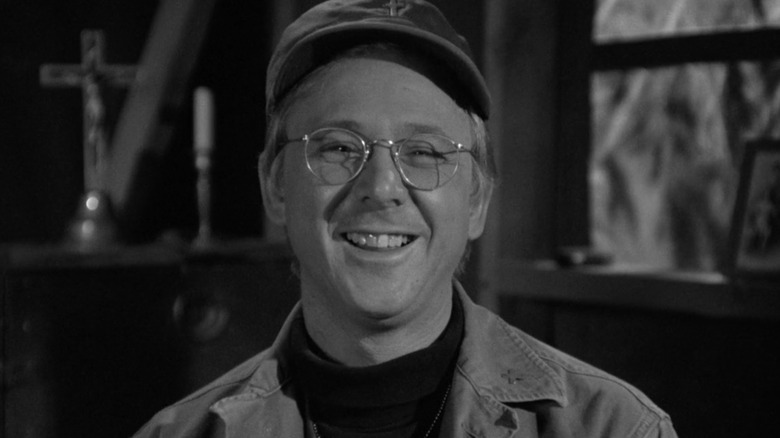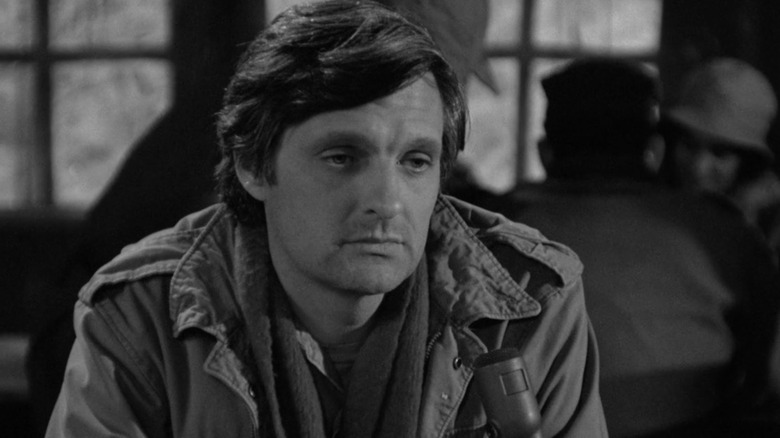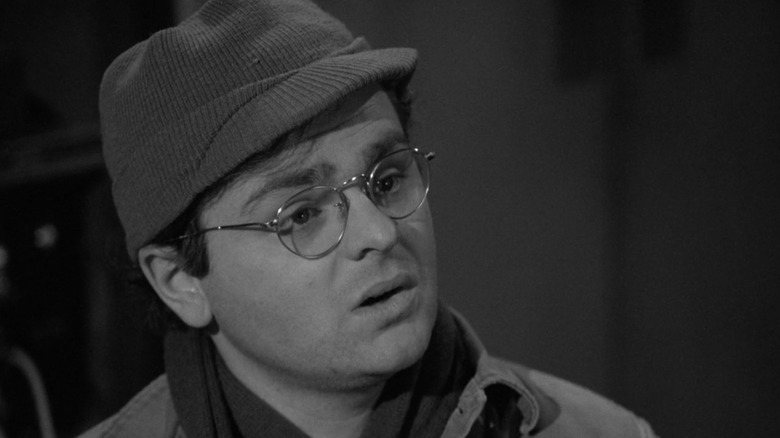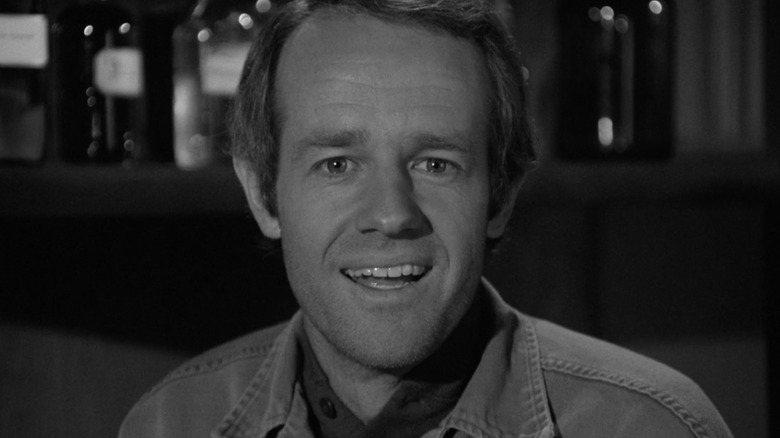A Lot Of Trust Went Into One Of The Best Episodes Of M*A*S*H
Recently, more than half a century after its premiere, FOX released a retrospective special about the storied anti-war sitcom "M*A*S*H" that included rare and previously unseen interviews with the show's cast and crew. When they weren't reminiscing about their characters and opening up about cast changes over the years, former members of the fictional 4077th Mobile Army Surgical Hospital discussed episodes of the show that broke the TV mold, pushing the medium beyond its established boundaries and yanking on viewers' heartstrings in unexpected ways.
Among the spotlighted episodes in "M*A*S*H: The Comedy That Changed Television" was "The Interview," the season 4 finale that saw the show briefly take the form of a black-and-white war documentary. The late writer and executive producer Burt Metcalfe said the experiment took inspiration from Edward R. Murrow's 1950s newsreel show "See It Now," which included interviews in Korea during the war. "We'd always had a notion of doing a show like that," he said in footage included in the new special. "The Interview" isn't just a format break for the series, but a tonal one as well: free from the comedic rhythms of a laugh-track sitcom world, the characters in "M*A*S*H" are able to speak seriously at length, in some cases for the first time.
The script was shaped by the cast members themselves
"The Interview" still includes some jokes (there's a great bit from Radar about racing earthworms), but it's remembered as a stunningly somber chapter in which Hawkeye (Alan Alda) laments the cost of war and Father Mulcahy (William Christopher) tells an unnerving story about cold doctors warming their hands over the bodies of the wounded. "Could anyone look on that and not feel changed?" Mulcahy asks, blinking back tears. Audiences felt changed, too, and in the new retrospective, the cast and crew explained that the emotional impact came from an unexpected place: an exercise that asked each actor to improv at length in character ahead of filming.
"They gave us tape recorders," Alda recalled. "All the actors had tape recorders with questions to answer." At some point before production, the actors were asked to answer questions as their fictional counterparts, and those answers were incorporated into the episode script by series creator Larry Gelbart. "The Interview" would ultimately be Gelbart's last contribution to the show, and it became a collaborative effort between himself and the cast who had brought the characters he wrote ("M*A*S*H" originally came from Richard Hooker's novel) to life over the past four years. "Larry trusted us enough to know that we would respond from our characters," Radar actor Gary Burghoff said. "At that point, we understood our characters so well."
'The Interview' has a sense of spontaneity and realism
"Larry took all of that material that we'd improvised into the tape recorders, but also material that had been punched up by Larry so it was more pointed, funnier," Alda, who wrote and directed much of the series himself, told interviews for the special. The actors had to stay on their toes, though, because during production, the interviewer played by Clete Roberts (a real war correspondent) was instructed to sometimes throw them curveballs. "The interviewer would ask us questions we hadn't expected, so we were on the spot on camera and some really good stuff came out of that," Alda recalled.
The result, as B.J. Hunnicutt actor Mike Farrell put it, is "raw and beautiful and honest." Each of the actors interviewed seemed to recognize the moment for what it was: both a point of honest connection between the fictional world of "M*A*S*H" and the real experiences of veterans (writers interviewed real army doctors and nurses throughout the show's run) and a creative playground for a great group of performers. "[It was] a real piece of wonderful theater that allowed us as actors in character to talk about what we're experiencing in this god-awful place under these circumstances," Farrell explained.
The documentary episode endures
"M*A*S*H" may not have been the first sitcom to ever break free from the confines of the multi-cam world like this, but the influence of "The Interview" is still obvious across television history. Shows from "The West Wing" to "Homicide: Life on the Street" to "The X-Files" have all included documentary format departures. Meanwhile, mockumentary shows like "The Office" inverted the formula, establishing the documentary framing device as its norm and only breaking from it as the series drew to a close.
In many of these shows, as with "M*A*S*H," characters can get more "real" with a documentary camera trained on them, surprising viewers with off-the-cuff curse words or disarmingly honest, unplanned moments. Yet "M*A*S*H" perfected the format early on by allowing for plenty of spontaneity behind the scenes, not just in the final product. "The Interview" is the show at its very best, and it's also an all-too-rare sort of collaborative, creative TV magic.



